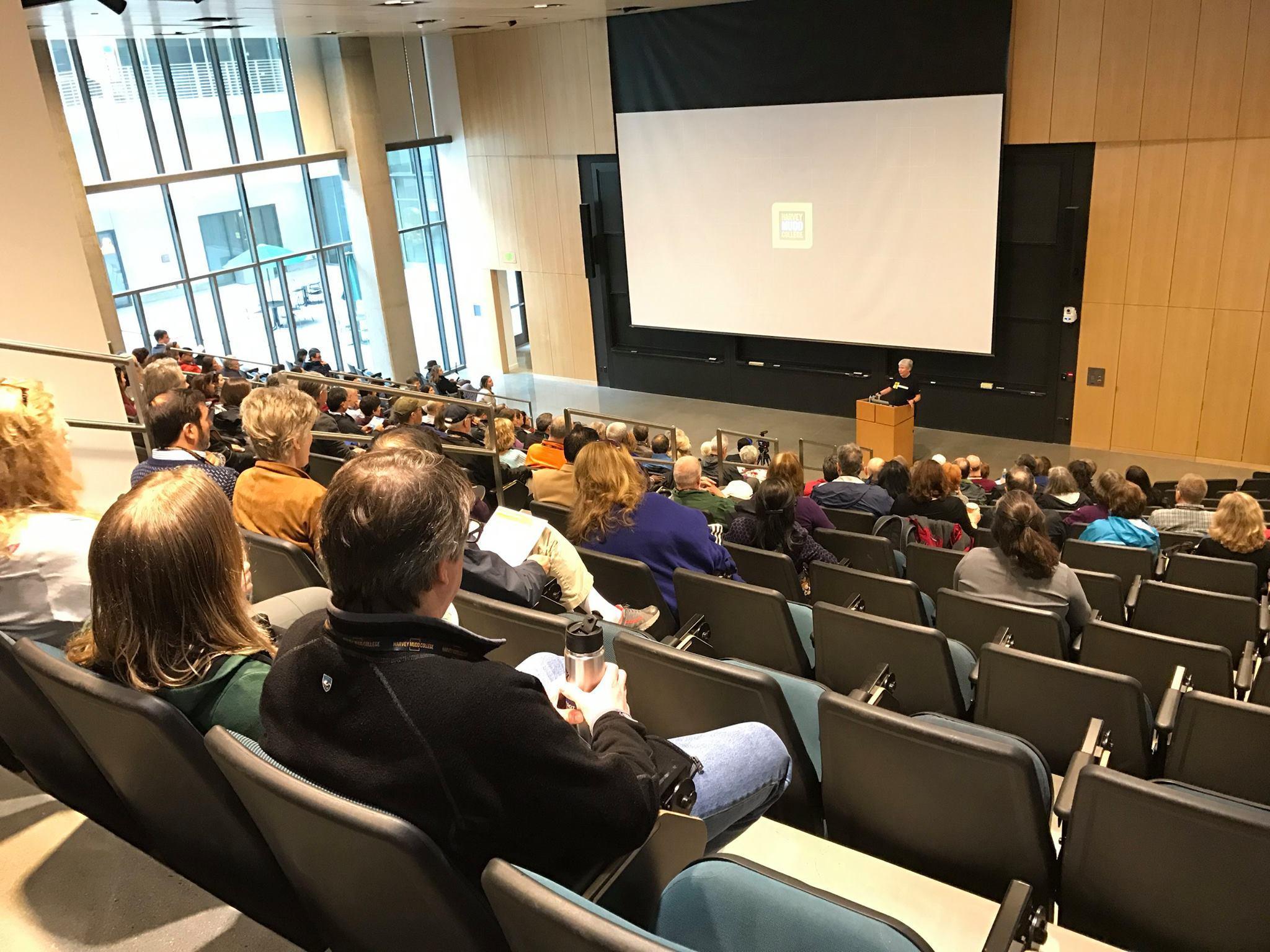A tiny California college whose graduates outearn Harvard and Stanford grads is changing how we train students to enter the job market

Your support helps us to tell the story
From reproductive rights to climate change to Big Tech, The Independent is on the ground when the story is developing. Whether it's investigating the financials of Elon Musk's pro-Trump PAC or producing our latest documentary, 'The A Word', which shines a light on the American women fighting for reproductive rights, we know how important it is to parse out the facts from the messaging.
At such a critical moment in US history, we need reporters on the ground. Your donation allows us to keep sending journalists to speak to both sides of the story.
The Independent is trusted by Americans across the entire political spectrum. And unlike many other quality news outlets, we choose not to lock Americans out of our reporting and analysis with paywalls. We believe quality journalism should be available to everyone, paid for by those who can afford it.
Your support makes all the difference.Harvey Mudd College, a tiny liberal-arts school in Claremont, California, is an engineering, science, and mathematics powerhouse.
In fact, its graduates outearn those from Harvard and Stanford about 10 years into their careers.
But in addition to its reputation for producing strong graduates in the STEM fields (science, technology, engineering, and math), HMC also produces students -- sometimes known as Mudders -- who embrace the arts.
The school, which enrolls about 800 students, not only encourages but demands that Mudders graduate with a strong liberal-arts background, taking just as many courses in the humanities as they must in core introductory courses in the sciences.
HMC describes its core curriculum as "an academic boot camp in the STEM disciplines -- math, physics, chemistry, biology, computer science, and engineering -- as well as classes in writing and critical inquiry" that it says "gives students a broad scientific foundation and the skills to think and to solve problems across disciplines."
The approach closely mirrors advice from some experts on how schools can develop students able to compete with automation, which has become an increasingly disruptive force in the labor market.
Self-driving cars, for example, threaten the job security of millions of American truck drivers, and automated financial advisers are replacing humans at wealth-management firms.
"Absolutely I think there's value in some level of understanding computer science," Shon Burton, the CEO of HiringSolved, previously told Business Insider.
Burton, whose company uses artificial intelligence to make job recruiting more efficient, said students must embrace the humanities to become critical thinkers who improvise in ways that robots cannot.
At HMC, the computer-science program is so strong that elite STEM-focused schools have taken note.
The California Institute of Technology, for example, invited educators from HMC to visit its campus and provide training on how to teach computer-science classes for better student retention, Caltech professor Yisong Yue told Business Insider. Caltech is a premiere science and engineering college and was labeled the top school in the world for delivering work-ready graduates in 2016.
Part of this success is due to the thoughtful way HMC has chosen to structure learning, Jim Boerkoel, a computer-science professor at HMC, told Business Insider.
"Everybody arrives and they have to take at least one computer-science course, which is fairly unique for many schools, particularly liberal-arts schools," Boerkoel said.
The introductory computer-science course is intentionally broader than most intro courses. While the traditional approach features a programming-focused class, HMC redesigned its intro sequence to touch on programming, logic, software development, artificial intelligence, and other topics within the field.
The school also provides both basic and advanced sections of the intro course so students who might otherwise dominate the discussion don't intimidate students who are less familiar with computer science.
"Those changes have led to some pretty big advances and equity across gender," Boerkoel said.
So much so that last year, HMC graduated its first majority-female computer-science class. Nationally, men make up more than 84% of undergraduates majoring in computer science, according to the Computing Research Association.
"They have an extraordinary undergraduate education program," Yue of Caltech said.
Read more:
A tiny California college whose graduates outearn Harvard and Stanford grads is changing how we train students to enter the job market
•Here's what that square patch on your backpack is actually used for
• The right way to impress someone without sounding like you're bragging
Read the original article on Business Insider UK. © 2016. Follow Business Insider UK on Twitter.
Join our commenting forum
Join thought-provoking conversations, follow other Independent readers and see their replies
Comments